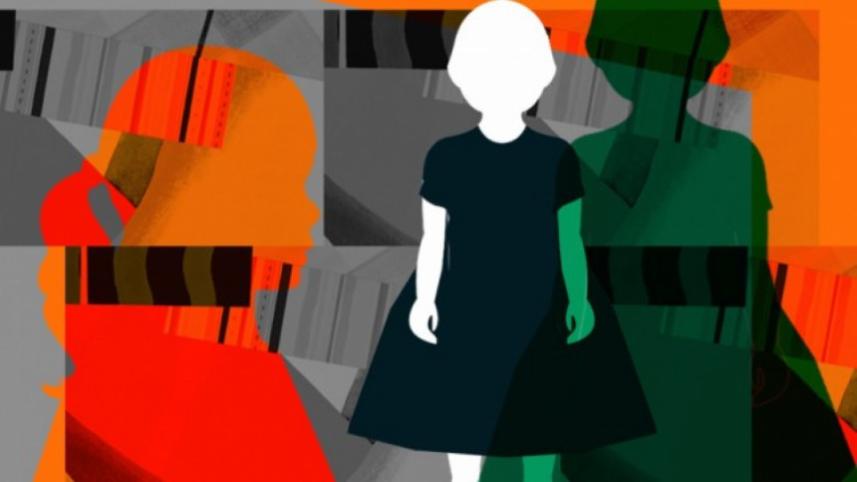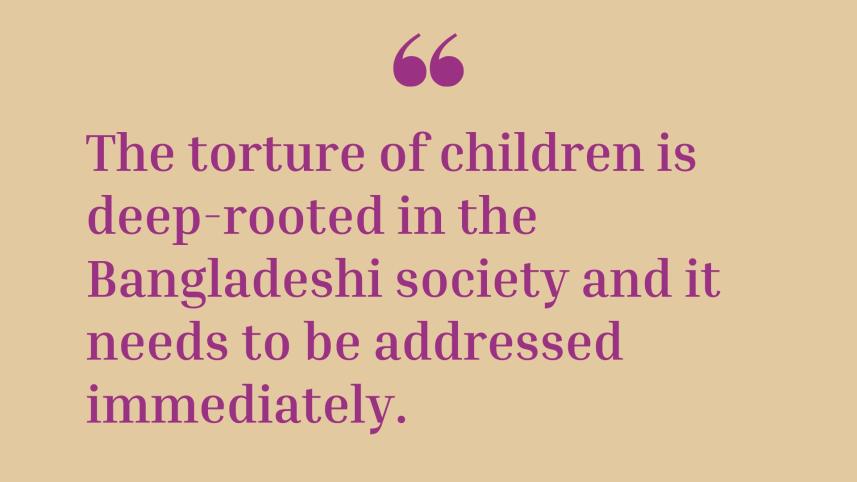Childhood abuse may affect future health: BSMMU

Abuse and adversities before the age of 18 may leave negative impacts on physical and mental health in the years afterwards, researchers at Bangabandhu Sheikh Mujib Medical University said yesterday.
Based on 26 different case-control studies on five themes, conducted over the past five years, they said the torture of children is deep-rooted in the society and it needs to be addressed immediately.
The findings of the studies were shared at an event at BSMMU yesterday.
"Our studies show that anyone abused in their childhood is highly likely to suffer from [mental and physical] health issues," Dr Md Atiqul Haque, a professor at the Department of Public Health & Informatics, who coordinated the studies, told The Daily Star.
The five themes of the studies were — child rights and protection; online child abuse; adverse childhood experiences and subsequent health problems; the role of media in stopping child abuse; and impact of non-communicable diseases on child development.
A study on 1,416 children, aged between 11 to 17, in rural areas of Bangladesh showed that 19 percent of them were subjected to physical abuse, 17 to emotional abuse, and 78 were neglected at home, school, and/or work.
The study also shows that child workers, children with disabilities, and children living in slums are at a higher risk of abuse.
Researchers said that the children who experienced abuse are twice as likely to suffer from health issues compared to those who did not.

Another study on 460 children, aged 11-17, highlighted that 33 percent of these children are internet users. Some 59 percent of them had at least one "criminal attitude", while 38 percent had two and 26 percent had three.
A criminal attitude is when a child displays tendency to lean towards criminal activities.
The study also shows that children or teenagers who use Facebook, TikTok, WhatsApp, and other social media apps are the most likely to be victims of online sexual abuse.
Interviews with the mothers of 45 children with autism, who are admitted to a tertiary-level hospital in Dhaka, showed that every child aged between three and nine were subjected to physical or mental abuse.
A total of 8.9 percent of them were sexually assaulted at some point.
Speaking as the chief guest, Prof Sharfuddin Ahmed, vice chancellor of BSMMU, said, "No child below 16 should be given a mobile phone, because they are not equipped with the sense to differentiate between good or bad. Many end up being involved in criminal activities [without knowing]."
He advised the guardians not to allow their children to use mobile phones for more than two hours a day, and not more than 30 minutes at a stretch.



 For all latest news, follow The Daily Star's Google News channel.
For all latest news, follow The Daily Star's Google News channel.
Comments